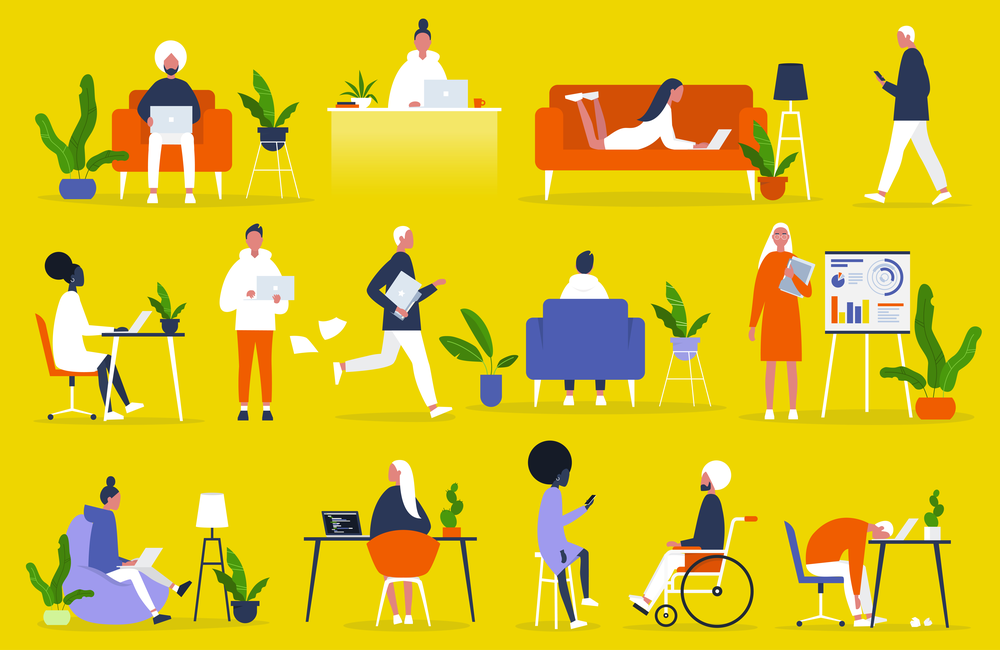Flexible working post-Coronavirus: A new era for disability inclusion?
- 4 Min Read
COVID-19 has forced businesses across the globe to reassess their approach to flexible working, highlighting workplace inequality that cannot continue. HRD Connect and Sulaiman Khan, Disabled Entrepreneur and founder of ThisAbility Ltd examine the world of flexible working post-Coronavirus.
- Author: Sam Alberti
- Date published: Mar 18, 2020
- Categories

With modern businesses placing greater emphasis on company culture, employee engagement and wellbeing, flexible working solutions are becoming increasingly popular among workers and employers alike. Most commonly, this allows employees to work remotely or attend the office at times that better suit them.
Studies show that 1 in 10 workers applied for their roles based on these benefits, nearly 40% stated they enjoy work more as a result of them, 34% said they are more productive and 36% said they are less stressed. And yet, the same study shows that roughly 70% of workers do not currently have this option, which presents somewhat of an anomaly.
However, the spread of the COVID-19 virus has presented a new scenario for workers and employers worldwide, with many being unable to attend their workplaces. Based on this, employers are being forced to implement flexible and remote working measures where they may not have done otherwise.
Whilst harmless on face value, some feel this reaction highlights an underlying inequality in terms of employers’ attitudes towards disabled workers, with many being refused the flexibility the year-round flexibility they need in order to fulfil their role to a high standard.
Sulaiman Khan, Disabled Entrepreneur and founder of ThisAbility Ltd, expressed his views on this matter, pointing out that UK workers with disabilities are more than twice as likely to be unemployed.
“When disabled employees ask for accommodation, they are constantly denied and told it is impossible,” he said.
“There has been a very rigid mentality towards that kind of thing, however now it is suddenly becoming available. It is quite frustrating.”
Despite this perceived inequality, the hope is that enforced flexi-working will provoke employers to reconsider, offering such benefits all year-round, including to those who need it most.
Khan believes this will be a simple and seamless process, describing disabled employees as “experts in technology”.
“We have to be,” he said. “We have so much life experience of actually working from home and using technology because of our disabilities, and yet we’re still not included in the conversation.”
But as much as current events will open the eyes of employers in terms of how straightforward it would be to offer these benefits to disabled workers, many feel the impact will be felt by all.
Figures show that 32% of flexible workers said they get to spend more time with their family, 29% said it saves them money, 21% said they felt more active and 19% said they had a better social life.
With this in mind, increased flexible working benefits should become a no-brainer for employers once they have adapted to implementing them.
“This is good for everybody,” said Khan. “No one should be in the office for 18 or 19 hours a day. That’s just not healthy.”
Khan pointed out that 80% of disability is acquired after birth, and therefore that no one is immune to it.
“It is one of those things that can affect anyone at any time, so I think we just have to really to challenge the narrative,” he said.
“Hopefully this is a new, positive thing, and I hope that once it is over, employers don’t get back into old habits. That is my biggest fear.”
“If we can make it work in this situation, we can make it work any day of the week.”
Many organizations are now fervently attempting to do this, implementing such measures and attempting to adapt.
Major consultancy firm KPMG has officially instructed all 8,000 of its London staff to work from home. Similarly, Royal Bank of Scotland, Ford and General Motors have all activated remote working measures. London-based asset management firm Schroders has divided the entirety of its 5000 employers across 34 locations into two teams, alternately working from home and in the office.
Research suggests that, on average, it takes an individual 66 days to convert a new behaviour into a habit. While this forecasts a two-month teething period for organizations changing tack during the virus outbreak, such companies are faced with a golden opportunity to proactively adapt to during this period and reap the benefits thereafter.
If organizations can overcome this initial disruption, not only will they have the advantage of hiring more effectively and delivering a healthier company culture and employee experience, they will be better poised to accommodate disabled workers, fostering more inclusive and future-facing businesses.
“It’s about making sure disabled people do not have to fight for things are basic rights,” said Khan, in a final sentiment. Whilst an inherently troublesome period on face value, for many, the spread of coronavirus may serve to open the minds of employers, creating healthier working experiences for all, and more diplomatic environments for those with disabilities.









